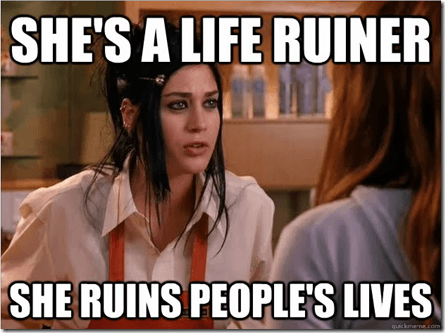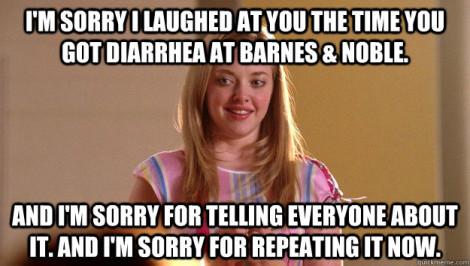
The ease of communication and relative anonymity afforded by the internet has left most of us quite complacent about the information we post and share.
Ideas, opinions and impressions about colleagues, friends, politicians or public figures are all readily published online with little regard to the possible impact or consequences.
But what you might not know is that by publishing or spreading information (whether online or otherwise) that is damaging to another person’s reputation, you can be sued under State and Territory defamation legislation.
One poorly composed status update, tweet, Instagram image, email, group text message, comment, blog post or news story that reflects negatively on the reputation of another person can leave you open to legal action under defamation law, regardless of whether your remarks are intentionally damaging or not.
To minimise the risk of unknowingly defaming someone, and potentially facing a costly legal action, it is important to get informed about Australian defamation law and how it impacts you. We explain what information can be considered defamatory; options that may be available to you if someone publishes defamatory information about you, as well as general guidelines for good online habits.
What Is Defamation?
Anyone who suffers a loss resulting from something you published is able to take legal action against you for causing that loss.
Under Uniform Defamation legislation and Australian case law, spreading false or defamatory comments about another person is actionable under the law of any Australian State or Territory. Legislation governing this area of civil law is focused on protecting individual rights from unsubstantiated attacks that may harm an individual’s reputation. It seeks to balance free speech and the need for discussion on matters of public interest, with information or material that may be damaging.
It is important to remember that defamation is not limited to written communication. It can include detrimental information communicated verbally to a group, over the radio, through print media, online publications, social media, photographs, videos, illustrations or other means.

In a landmark ruling in Switzerland, defamation law has been found to extend as far as a Facebook user ‘liking’ a post that is defamatory of another person.
In our ‘Mean Girls’ example, by spreading rumours and fabricating information that negatively impacts the standing and reputation of other students, Regina George, could find herself the defendant in an expensive defamation lawsuit under Australian law.
Vicarious Liability & Defamation Law
Defamatory information (in any form) that is seen or heard by at least one other person and that negatively impacts your character can quickly lead to a costly defamation lawsuit.
With the rise in popularity of social media and online services, virtually anyone online is a publisher of information. This means that you are subject to the same laws that apply to major media publications and news outlets.
The ACT Supreme court has gone one step further by establishing that owners of websites can face vicarious liability for information published by contributors that is harmful to an individual, even where the owner of the site is not aware of that information. If the site is intended to be silly, irreverent and not to be taken seriously, certain information can still be considered defamatory.
This serves as a timely reminder for private bloggers, publishers, media powerhouses and newspapers that everyone involved in the publication of potentially defamatory material can be held liable. It is not possible to argue that you are only repeating rumours or a comment made by somebody else as you can be liable for a republication.

In our ‘Mean Girls’ example, as the owner of the Burn Book, Regina could be held vicariously liable for defamatory comments regarding the false criminal activity of a staff member, even though those comments were not written by her personally. It also means that Regina, and everyone who contributed to writing defamatory comments about staff and students, could also be sued for defamation.
When Can Information Be Considered Defamatory?
Information is considered defamatory if the below three questions can be answered affirmatively:
1. Has the material been shared with at least one other person?

Excluding the person who was defamed, at least one other person must see or hear the false information.
In Australia’s first social media defamation case, a former student has been ordered to pay over $100,000 in damages to a teacher after tweeting a series of defamatory comments on Twitter. It is important to remember that even if you are not the author of the original defamatory message, but you share the message (for example by retweeting it), you can still be sued for defaming someone.
In our ‘Mean Girls’ example, Regina made copies and disseminated false and damaging information about Ms Norbury’s purported criminal activity to all staff and students. So the material has been shared with at least one other person.
2. Does the material adequately identify you?

The material must include information that adequately identifies you. Your name might be used in connection with the defamatory remarks. If your name is not included, some cases have found that other information may be sufficient to imply that the material is about you.
In our ‘Mean Girls’ example, defamatory comments about Amber D’Alessio were widely circulated, leading to public ridicule and loss of reputation. Her name and image were published in conjunction with the damaging comments which puts her identify beyond doubt.
3. Communication must be defamatory
If the average or reasonable person is likely to think less of you after seeing or hearing the published material, then it is usually considered defamatory.

The information may make fun of you, suggest that you have a disease, are promiscuous or committed a crime. If others are likely to avoid or isolate you after the information is published then it is likely to be considered defamatory and you can take action.
In our ‘Mean Girls’ example, publishing false accusations that Ms Norbury trafficked drugs led to public scrutiny of Ms Norbury, criminal investigations, a loss of professional reputation and personal standing. It is likely that Ms Norbury could successfully sue Regina for the loss suffered.
4. There are no available defences to publishing the material
Simply because information is mean, embarrassing, hurtful, irritating, offensive, false or has a negative impact on a person’s business does not mean it is defamatory.

In general, the courts will not find material defamatory if:
- the information is substantially true
- the information was an honest opinion
- the information is subject to qualified privilege (this covers references given by employers or complaints to the police or other relevant authorities)
- the information is not important and the chance that your reputation will be damaged is not high.
What Are Your Options If You Have Been Defamed?
If your reputation has been negatively affected by information or material shared by someone else, there are a number of options available to you. Outlined below is a list of various courses of action you may wish to consider, ranging from the lightest to strongest:
- Take the moral high ground and do nothing
- Approach the publisher or author and seek an apology or for the material to be removed
- Request that the publisher or author clarify the comments made about you in a way that does not harm your reputation
- Seek an injunction which prevents any further communication of the material
This will be relevant where the information is continuously being circulated, for example, in an online publication or media outlet and your initial requests for the material to be removed have not been complied with. To do this, you will need to obtain advice from a lawyer specialising in defamation law.
- Seek an urgent court order that prevents the information from being published
This option will be relevant where you become aware of potentially defamatory information before it is published.
Depending on which of the above options you choose, you may wish to consider using the below draft email:
Dear Sir/Madam
It has come to my attention that the [information/comment/image] about me has been published on your [website/publication/Facebook page/Twitter feed/radio show/email] as below.
[insert the defamatory material]
I wish to advise that this information is damaging to my personal and professional reputation and I consider it to be defamatory of me.
I am happy not to take this matter further if you cease to distribute/publish the material further, immediately remove the defamatory information and issue a public apology to me.
I would be grateful if you would urgently comply with my request. Should you fail to do so within 24 hours, I will pursue legal action seeking [an apology / injunction / removal / damages] for the defamation.
Regards,
[insert your name]
- Commence legal action against the publisher or author of the damaging material
You can sue the person responsible for defaming you as well as anyone involved in the publication of false information (for example a publisher or a newspaper).
You may wish to consider this option in more serious cases, particularly if the information is professionally destructive of your reputation and has led to loss of earning capacity. Rebel Wilson is suing the publisher’s of Women’s Day for publishing defamatory articles that caused damage to her career. A court may award you damages to compensate you for the emotional damage you suffered as well as the harm to your reputation.
In our ‘Mean Girls’ example, given the gravity of allegations levelled at Ms Norbury, Regina and her friends could be liable for a large sum of damages. The defamatory comments not only impacted her professionally but also caused a potential loss of earnings (time away from work) as well as psychological pain and suffering. A court would be likely to take into consideration the severity of the case and award a sum of money to compensate.
How To Avoid Being Sued For Defamation
Be conscious of all your communication.

The spread of information these days is instantaneous: what you may think is a personal message to a colleague can easily be forwarded to the entire office. Remember that anything you say has the potential to not only harm another person but also result in a great deal of financial damage to you.
- Be mindful about what you put in writing
Never publish or send any information when you are distracted, stressed, angry or upset. Wait until you are calm, clear and objective. This might mean drafting an email the night before and re-reading it in the morning before pressing ‘send.’
Before posting a social media update:
- Ask yourself “Would a newspaper publish this?” or “Would you be happy if this information became a headline story in the newspaper?” If not, delete it
- If in doubt, ask a friend or colleague to read it over for an objective opinion
- Wherever possible, avoid written communication, if you are discussing information that might be sensitive to a third party. Try to communicate verbally, either over the phone or in person. This not only lessens the chance of information you pass on being quoted accurately but also reduces the risk of that information being misconstrued, used for the wrong purpose or shared.
2. Carefully consider what you share on the internet
You could unknowingly expose yourself to litigation. Remember once something is online you have lost control of it forever.
3. Adjust your privacy settings to ensure your posts are viewed by the least amount of people possible
4. If you host discussion forums, run a website with multiple contributors or own a company with a social media presence, be vigilant.
Regularly monitor discussions taking place on pages you manage and remove anything that could directly or indirectly identify an individual and be interpreted as damaging to that person. If you employ staff who monitor your social media channels, establish policy and procedures for determining whether third party content is offensive.
5. If you do find yourself accused of writing something defamatory, remove the material immediately and apologise.
The best case scenario is that the person will not take things further.
Conclusion
Know your rights. Defamation law exists to protect you. If you feel that you have suffered harm to your reputation as a result of information published by someone else, do something about it. Equally important is to be proactive in maintaining a healthy online presence that avoids causing harm to others.
An on-the-spot decision to publish something you consider clever or funny can quickly turn into a very serious and costly mistake.
Further Information
If you have been the subject of defamatory comments or publications, seek legal advice immediately to prevent the further spread of the defamatory material and obtain a remedy. If you have been accused of making a defamatory comment or publication, you should also seek legal advice straight away because there may be consequences for not responding within a certain timeframe.
- For more information on good online habits visit Cyber Smart.
To get in touch with a legal professional specialising in defamation law contact:
- Marque Lawyers (NSW)
- Stephens Lawyers & Consultants (VIC)
- Slater & Gordon (National)
- Aherns Lawyers (WA)
- Australian Defamation Lawyers (QLD, VIC, WA, NSW)
- City First Solicitors (ACT); or
You can also search the Australian Lawyers Directory for legal representation in your area.
 Agree? Get informed about legal change that impacts you with our newsletter. You'll automatically receive fresh content each time we publish.
Agree? Get informed about legal change that impacts you with our newsletter. You'll automatically receive fresh content each time we publish.